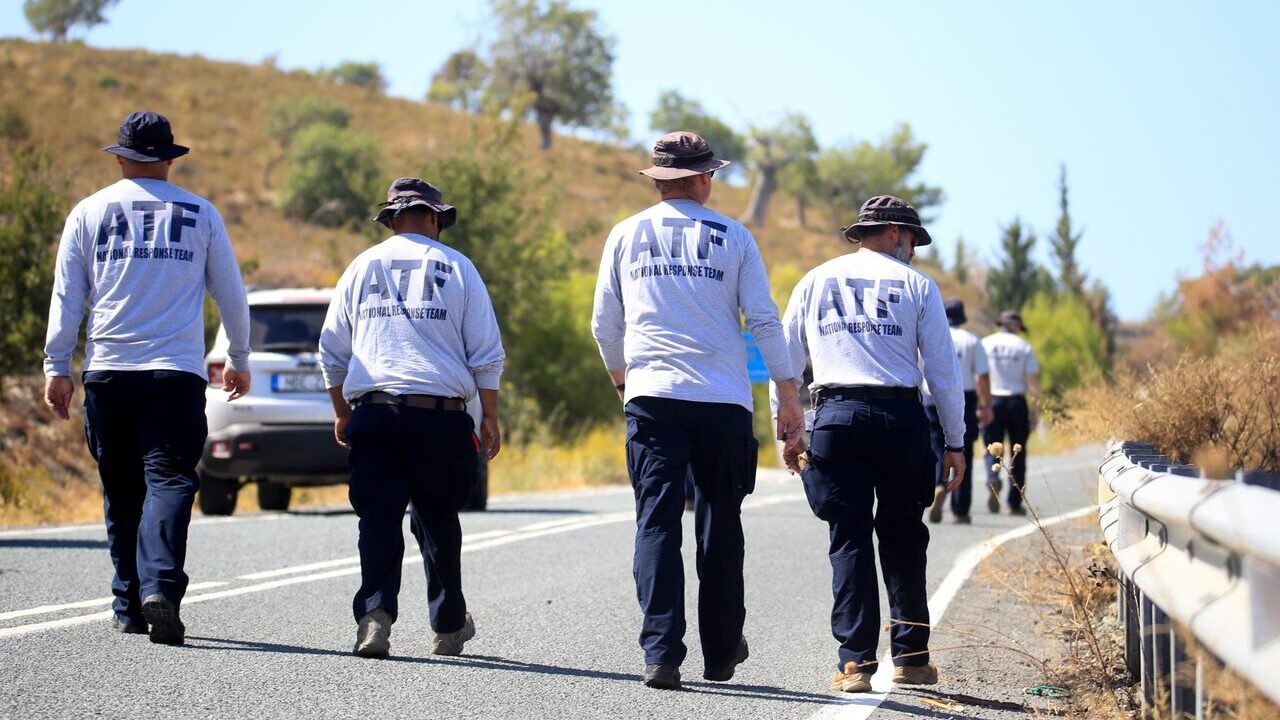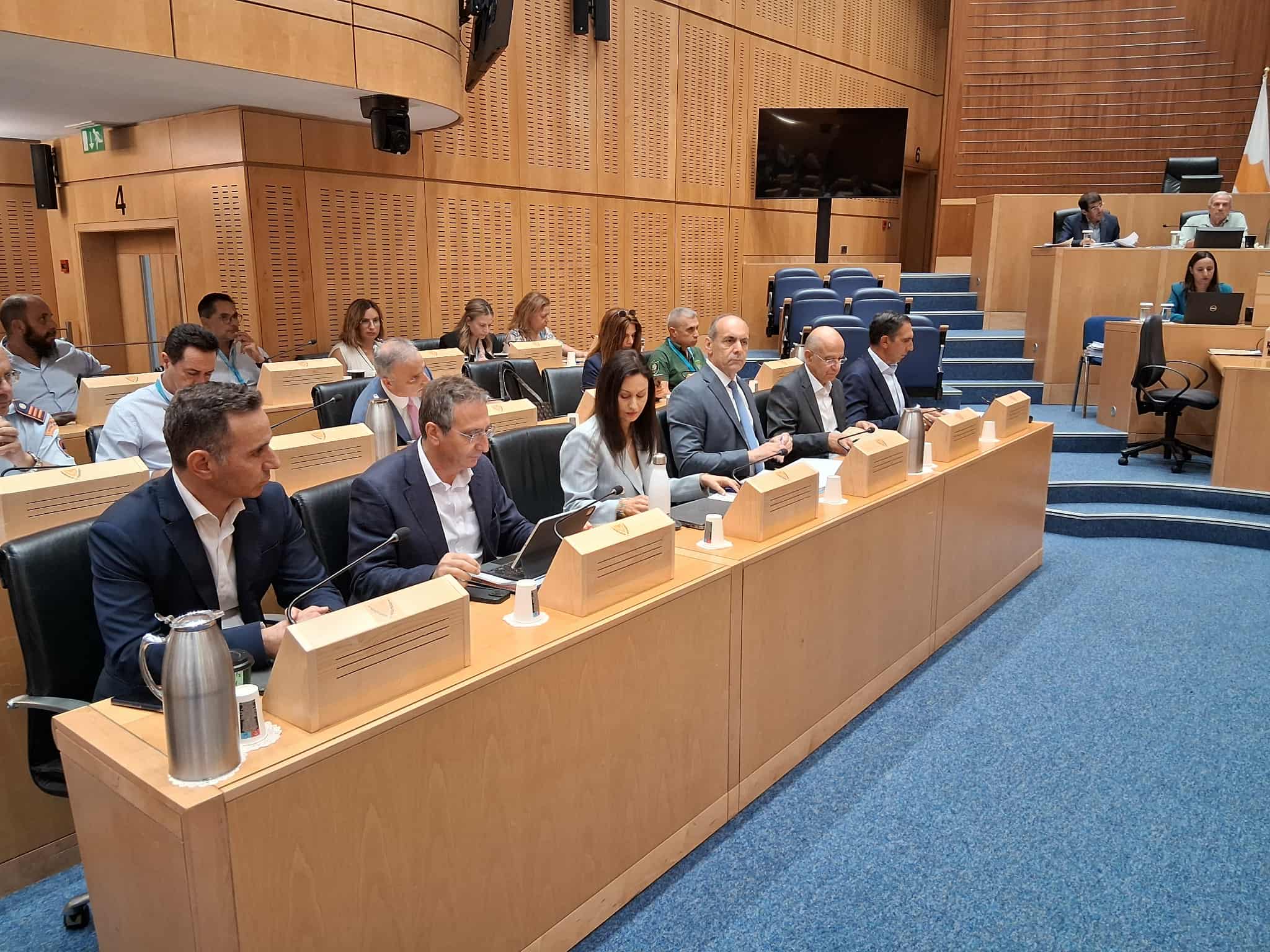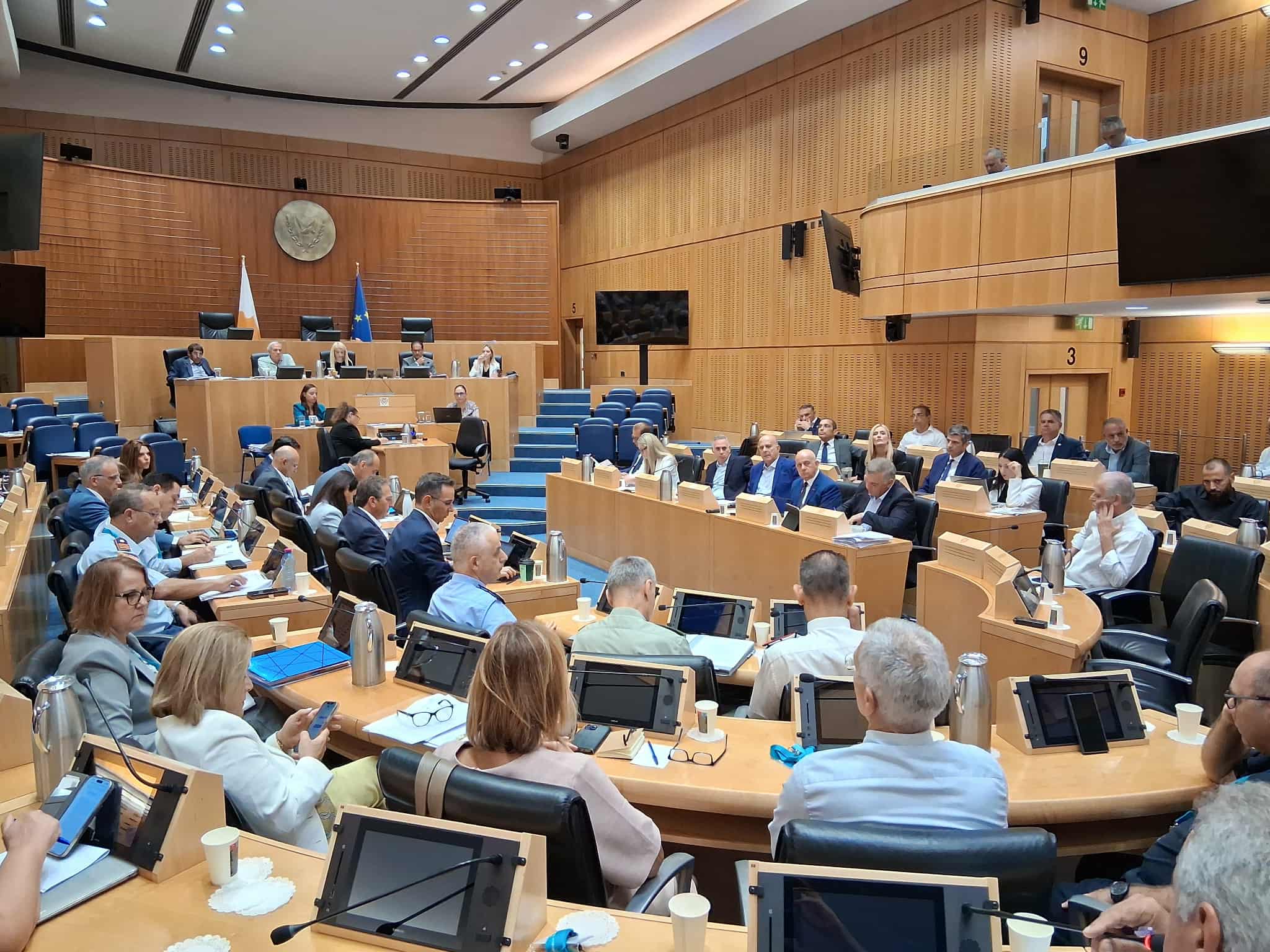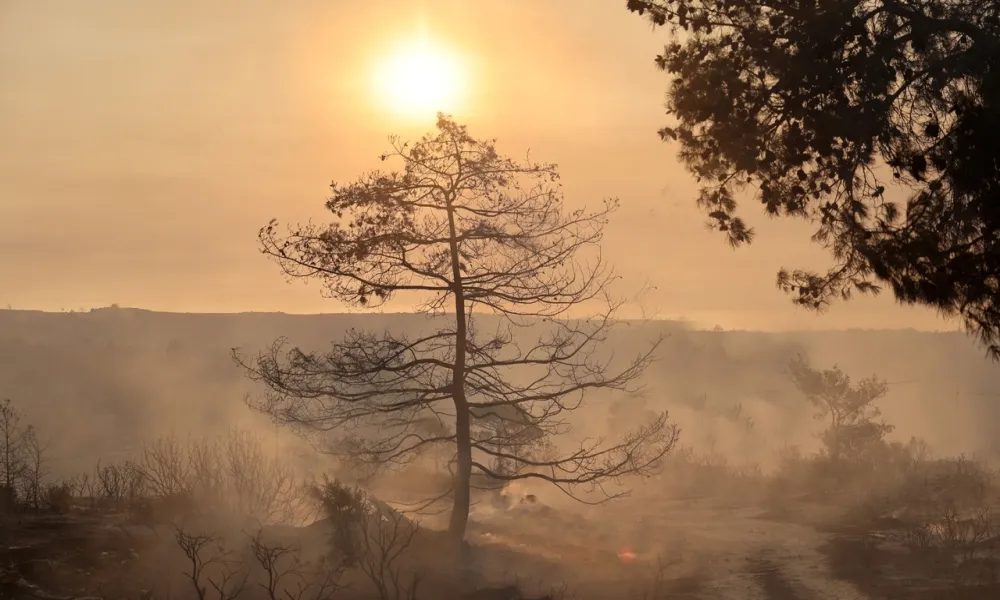Admissions of weaknesses, but also attempts to shift responsibility, were on display Friday during the second joint meeting of the House Committees on Internal Affairs, Agriculture, and Environment. The session examined the devastating wildfire in Limassol’s mountain region, with the aim of preparing a parliamentary report.
The marathon meeting was marked by tensions, heated exchanges, and at times, grandstanding by MPs, which often overshadowed the substance of the discussion. Lawmakers sought answers that the much-anticipated report by US experts from the Bureau of Alcohol, Tobacco, Firearms and Explosives (ATF) had not provided: namely, the failures of Cyprus’ fire prevention and management system. Yet, little progress was achieved, with expectations now turning to a third parliamentary session.

Fire Chief Defends Arson Claims
One day after the ATF report attributed the blaze’s origin to two discarded cigarette butts, the conclusions were inevitably at the heart of the debate. Fire Chief Nikos Longinos vigorously defended his earlier claims that arson was to blame. When House Speaker Annita Demetriou pressed him, pointing out that US experts ruled out arson, Longinos argued that under Cyprus’ law, leaving a lit cigarette constitutes arson.
He added that on July 24, the day after the fire, he personally photographed 20 cigarette butts at the scene, including the two documented by the US team. He also revealed he had set up a three-member internal committee to investigate the causes, prompting Demetriou to question: “Why did we bring in the Americans if you’re conducting your own inquiry?”

Indirect Blame Cast on Victims
Police Chief Themistos Arnaoutis stirred controversy by suggesting indirect responsibility lay with the elderly couple who died trying to flee the flames near Sylikou. He said they ignored warnings about a dangerous road, opting for a route toward Alassa minutes before it was closed.
AKEL MP George Loukaides condemned the comments, arguing they made it seem as if the victims were being blamed for their own deaths. Arnaoutis insisted only that his testimony would be presented at the inquest.
He also confirmed that after investigating 13 separate tips, police found no evidence to charge anyone with arson.
Local Leaders Voice Anger
Community leaders from the affected villages strongly criticised ministers present, including those of the Interior, Agriculture, Justice, and Innovation, citing lack of coordination during the fire.
Limassol Union of Communities president Lefteris Periklis said: “Four ministries are involved, but no one takes command at the coordination centre. Volunteers come from outside and don’t know the terrain. You blame us for not clearing our villages, but why can state agencies enter private land during fires and not in peacetime?”
Others described firefighters arriving without knowledge of village roads, communities denied requests for fire trucks, and abandoned vineyards, once natural firebreaks, left to disappear. They demanded replanting programmes as protection against future blazes.
Calls for a New Civil Protection Ministry
Former Fire Service chief Markos Trangolas argued that Cyprus needs a dedicated Ministry of Civil Protection to centralise fragmented responsibilities. “We are a small country. Prevention and suppression should be easy to manage, but divided duties create chaos,” he said. He also urged more realistic drills involving the public, stressing the need for immediate aerial firefighting coordination.

National Guard Promises Fixes
National Guard Commander Lt. Gen. Georgios Tsitsikostas acknowledged long-standing coordination gaps, not just in natural disasters but also in broader national planning. He said firefighting aircraft were ready within minutes of the Limassol fire, but smoke density prevented early drops. He promised that shortcomings identified in exercises would be addressed.
Minister Admits Shortcomings
Health and Social Policy Minister (and former Health Minister) Konstantinos Ioannou stood out among cabinet members for openly admitting failures. He pledged reforms to strengthen fire preparedness, including mandatory pre-notified evacuation plans for youth camps, updated guidelines for community councils under the “Polyvios” plan, and renewed on-site training.
He announced €2.1 million in funding for nationwide community clean-ups of abandoned farmland and buffer zones around villages. In addition, every community will be equipped with wireless devices to ensure uninterrupted communication during emergencies.
